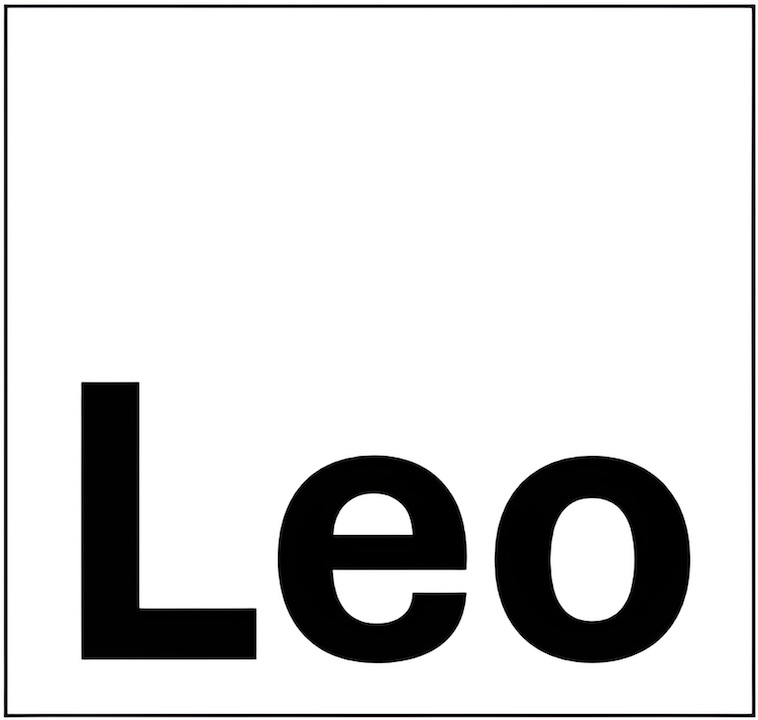The judicially-created doctrine of obviousness-type double patenting (ODP) originated long ago as a shield to protect the public against unwarranted patent term extension (PTE). The Uruguay Round Agreements Act of 1994 (URAA) removed most of these concerns when it changed statutory term from 17 years from issue to 20 years from earliest effective filing date. By limiting patent families to a single 20-year term, the URAA eliminated the ability of patent owners to indefinitely extend the term of their invention by filing successive continuations claiming similar subject matter. After the URAA, all patents in a family are effectively limited to the 20-year term of the first-filed patent, plus an occasional modest term extension due to regulatory delays (PTE) or delays at the U.S. Patent and Trademark Office (USPTO) (Patent Term Adjustment (PTA)).
This week in Other Barks & Bites: the Department of Commerce releases a plan to increase women’s employment in the semiconductor sector in order to meet CHIPS goals; the FTC adds 300 drugs to the FDA’s Orange Book of junk patent listings; and eight major U.S. newspapers sue OpenAI and Microsoft for copyright infringement related to ChatGPT.
The U.S. Court of Appeals for the Federal Circuit (CAFC) reversed a district court’s decision in Snaprays (dba SnapPower), v. Light Defense Group (LDG) on May 2, finding that Lighting Defense Group (LDG) purposefully directed extra-judicial patent enforcement activities at SnapPower in Utah. The opinion was authored by CAFC Chief Judge Moore.
A client’s recent experience applying for a European patent led to the development of a possible optimization strategy to address patent costs for clients. This client had made an initial U.S. filing and then extended his application in the form of a European patent application. His U.S. application went extremely well, and he obtained a quick grant with very few additional costs. This, unfortunately, was not the case with his European application.
An en banc panel of the U.S. Court of Appeals for the Federal Circuit (CAFC) today heard arguments from LKQ Corporation, the U.S. government and GM Global Technology Operations in a case that could change the test for assessing design patent obviousness. The judges seemed interested in tweaking the existing “Rosen-Durling” test but struggled with getting the parties to clearly articulate a replacement approach that wouldn’t be potentially just as bad. The so-called Rosen-Durling test for design patent obviousness requires that, first, under In re Rosen (C.C.P.A., 1982), courts identify a prior art reference “the design characteristics of which are basically the same as the claimed design.” Next, under Durling v. Spectrum Furniture Co., 101 F.3d 100, 103 (Fed. Cir., 1996)), if such a reference is identified, the court must consider whether it can be modified based on other references to come up with “the same overall visual appearance as the claimed design.”
U.S. Patent and Trademark Office (USPTO) Director Kathi Vidal has released a guidance memorandum for the Trademark and Patent Trial and Appeal Boards (TTAB and PTAB) on the misuse of artificial intelligence (AI) tools before the Boards that largely clarifies the application of existing rules to AI submissions. The announcement is a precursor to a coming Federal Register Notice that will provide additional guidance on the use of AI tools for the public and other USPTO departments. The guidance document suggests that part of its impetus was Supreme Court Chief Justice John Roberts’ recent year-end report, which acknowledged both the benefits and dangers of AI in the context of the legal profession.
The Judicial Conference of the United States’ Committee on Judicial Conduct (Conference) and Disability issued its decision today in Judge Pauline Newman’s appeal of the Judicial Council of the U.S. Court of Appeals’ (Council) September 2023 decision to suspend her from all cases. Federal Circuit Chief Judge Kimberly Moore first identified a complaint against Newman in April 2023. IPWatchdog was the first to break the news, and the court soon published a statement responding to media reports and making previously sealed documents public…. Today’s decision denied Newman’s petition for review of the Council’s decision, holding that the Council did not abuse its discretion in refusing to transfer the proceedings to a different circuit, that Newman has not shown good cause for her failure to cooperate, and that the sanction did not exceed the Judicial Council’s authority.
Senator Thom Tillis (R-NC) sent a letter yesterday to President Joe Biden again condemning the Administration’s December 2023 proposal to allow agencies to consider pricing in deciding whether and when to “march in” on patent rights. Under the proposed framework, which sources have told IPWatchdog is close to being finalized, an agency may consider “[a]t what price and on what terms has the product utilizing the subject invention been sold or offered for sale in the U.S.” and whether “the contractor or licensee [has] made the product available only to a narrow set of consumers or customers because of high pricing or other extenuating factors”.
On May 1, the U.S. Court of Appeals for the Federal Circuit issued a precedential decision in Intellectual Tech LLC v. Zebra Technologies Corp. reversing a Western District of Texas ruling that dismissed patent infringement claims for lack of constitutional standing. In so doing, the Federal Circuit found that Article III standing was not extinguished by the plaintiff’s default on a patent security agreement that granted a secured third party the right to assign the patents at issue in the appeal.
The U.S. Court of Appeals for the Federal Circuit (CAFC) issued a precedential decision today vacating and remanding with instructions to dismiss as moot a district court final judgment that granted enhanced damages for willful infringement to Packet Intelligence LLC. The appeal was brought by NetScout Systems, Inc. against Packet and relates to a co-pending case in which the CAFC today affirmed several decisions of the Patent Trial and Appeal Board (PTAB) holding all challenged claims of four of Packet’s patents unpatentable as obvious.
February 6 is the final day of the 60-day public comment period set by the National Institute of Standards and Technology’s (NIST) request for information on its draft interagency framework for exercising march-in rights under the Bayh-Dole Act of 1980. While lauded by drug pricing advocates, almost every other sector of the American economy has come out in opposition to the draft framework. Senator Thom Tillis (R-NC), the U.S. Chamber of Commerce and the Bayh-Dole Coalition have all publicly opposed NIST’s efforts to exercise legal authority for relicensing patent rights based on product pricing considerations.
On February 27, the U.S. Patent and Trademark Office (USPTO) published a notice in the Federal Register providing updated guidance for agency decision-makers on making proper determinations of obviousness under the U.S. Supreme Court’s 2007 ruling in KSR International Co. V. Teleflex Inc. While the USPTO’s examiner guidance doesn’t constitute substantive rulemaking, it traces 15 years of case law from the U.S. Court of Appeals for the Federal Circuit to clarify several areas of confusion stemming from the Supreme Court’s calls for a flexible approach to the obviousness analysis for patent validity.
On February 20, the U.S. Supreme Court issued an order list that denied petitions for writ of certiorari filed in at least five intellectual property cases. While none of these cases induced large numbers of amici to ask the Court to grant cert, they do represent several current issues in IP law that remain unaddressed. From the use of joinder to evade time-bar limits in patent validity proceedings to the service of process required for a grant of preliminary injunction, the Court’s cert denials leave several open questions with which the patent and trademark community will likely grapple.

Featured Contributors
![[Avatar for Randall Rader]](https://ipwatchdog.com/wp-content/uploads/2019/10/Randall-Rader-copped.jpg)

IPWatchdog Events
Webinar: Don’t Be Blindsided – How a Competitive IP Intelligence Program Can Protect Your Company
May 16 @ 10:00 am - 11:00 am EDT
Subscribe to IPWatchdog
This is the best way to stay informed. We send a daily roundup of our latest news, press releases, and events.
Get Email Updates
Industry Events
No Upcoming Industry Events
Check back later or promote your own!

Recent Podcasts


![[IPWatchdog Logo]](https://ipwatchdog.com/wp-content/themes/IPWatchdog%20-%202023/assets/images/temp/logo-small@2x.png)
![[Advertisement]](https://ipwatchdog.com/wp-content/uploads/2024/04/Quartz-IP-May-9-2024-banner-with-speakers-new-photo-1500x500-CLE.jpg)
![[Advertisement]](https://ipwatchdog.com/wp-content/uploads/2024/04/Patent-Litigation-2024-banner-last-chance-1500x500-1.jpg)
![[Advertisement]](https://ipwatchdog.com/wp-content/uploads/2024/05/Patent-Portfolio-Management-2024-banner-super-early-bird-1500x500-1.jpg)
![[Advertisement]](https://ipwatchdog.com/wp-content/uploads/2024/04/Patent-Litigation-Masters-2024-sidebar-last-chance-700x500-1.jpg)
![[Avatar for Gene Quinn]](https://ipwatchdog.com/wp-content/uploads/2015/05/Gene-09-19-2023-1-copy-1.jpeg)
![[Avatar for Wen Xie]](https://ipwatchdog.com/wp-content/uploads/2022/01/XIE-Wen-Xie-Global-IP-Counselors-square-scaled-1.jpg)
![[Advertisement]](https://ipwatchdog.com/wp-content/uploads/2019/07/Write-IPWatchdog.jpg)
![[Avatar for Madeleine Key]](https://ipwatchdog.com/wp-content/uploads/2022/02/Madeleine-Key-Head-Shot.jpg)
![[Advertisement]](https://ipwatchdog.com/wp-content/uploads/2021/12/Ad-5-The-Invent-Patent-System™.png)



![[Advertisement]](https://ipwatchdog.com/wp-content/uploads/2021/12/WEBINAR-336-x-280-px.png)









![[Advertisement]](https://ipwatchdog.com/wp-content/uploads/2021/12/2021-Patent-Practice-on-Demand-recorded-Feb-2021-336-x-280.jpg)